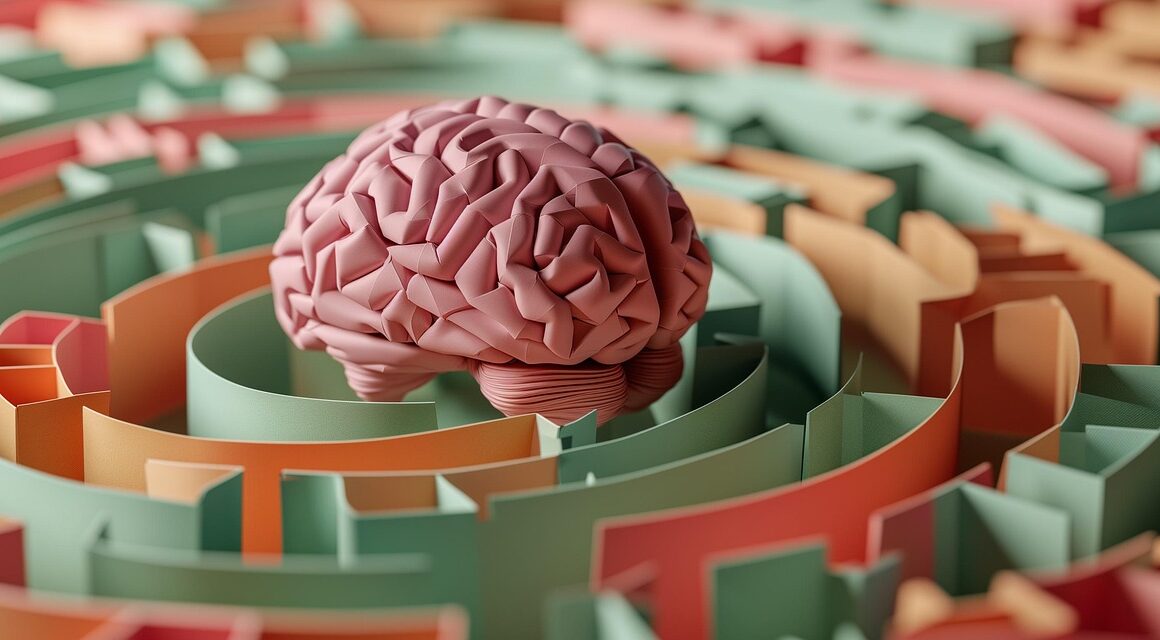Innovative Fitness Programs Focused on Cognitive Improvement
Health and wellness is not merely about physical capability; it increasingly emphasizes cerebral well-being. The integration of cognitive fitness within modern fitness regimes marks a significant trend. Programs specifically designed to boost brain health aim to enhance cognitive functions, including memory and problem-solving skills. These programs can incorporate various elements, potentially including physical exercise alongside mental challenges. Crucially, the link between physical activity and cognitive health is becoming clearer, as recent studies suggest that engaging in regular exercise fosters healthy brain function. Moreover, participants often report improvements in mood and focus. Such programs may combine aerobic activities with brain training exercises, reflecting a holistic approach to fitness. Incorporating strategies like mindfulness and nutrition into these routines can further maximize cognitive benefits. More importantly, these exercises can be enjoyable, promoting long-term adherence to healthy habits among participants. Ultimately, engaging in innovative fitness programs targeting cognitive improvement represents a proactive way to ensure brain health as individuals age. This comprehensive approach offers various physical benefits and cognitive enhancements, which are essential in fostering overall wellness.
Beyond traditional physical training, specialized programs focus on brain health through activities that stimulate cognitive processes. For instance, workouts can be structured around multitasking elements that engage different areas of the brain simultaneously. This unique format encourages participants to activate their cognitive functions while they work out, strengthening neural connections. Interactive games, which may include puzzles and memory tasks, are often incorporated to add a fun aspect, making the experience enjoyable. Additionally, many fitness centers are now offering classes that fuse dance or martial arts with cognitive elements, creating a vibrant environment for brain engagement. Personalized programs can also be designed based on cognitive assessments to identify specific needs and goals for participants. Moreover, the social aspect of these classes significantly contributes to mental well-being, as community engagement supports emotional health. Events like workshops and healthy lifestyle seminars may complement these programs, further emphasizing the importance of a well-rounded approach to health. In summary, innovative fitness classes create an incredible space for individuals seeking to improve brain function and overall health. Tailored experiences enhance personal growth, making cognitive fitness an essential aspect of the thriving health and wellness industry.
The Role of Nutrition in Cognitive Fitness
Nutrition is undeniably intertwined with cognitive function. As scientific research progresses, the perspectives surrounding nutrition and its vital role in brain health are expanding. Incorporating specific nutrients can enhance cognitive performance and longevity, driving attention to dietary habits. Foods rich in omega-3 fatty acids, antioxidants, and vitamins are particularly beneficial for cognitive health. They help combat oxidative stress and inflammation, which are damaging to neurons. Consequently, some fitness programs now prioritize nutritional education, offering workshops for participants to learn about brain-boosting diets. Additionally, meal plans can be integrated into fitness routines, ensuring that participants have appropriate nourishment for both physical and cognitive demands. Mindful eating practices are also highlighted, emphasizing the significance of enjoying food and understanding its impact on cognitive function. Furthermore, hydration needs to be a focus since even mild dehydration can affect concentration and cognitive abilities. Consequently, innovative programs teach participants how to optimize their diets to support brain function effectively. A community environment fosters shared experiences and collective learning, creating a strong support structure. Therefore, nutrition enhances cognitive fitness in association with physical training, reflecting an understanding of the whole person.
The integration of technology in fitness programs is revolutionizing how cognitive health can be promoted. Mobile applications and wearable devices allow participants to track both physical and cognitive performance effectively. These technologies can provide immediate feedback and encouragement, enhancing participant engagement. For instance, brain training apps may combine exercises focusing on memory, attention, and problem-solving capabilities, providing dynamic challenges. Furthermore, gamified elements increase motivation, transforming cognitive training into an enjoyable experience. Virtual reality (VR) technology is also being harnessed to create immersive experiences. Participants can engage in environments that challenge their cognitive skills while exercising. These advanced tools present new opportunities to couple physical activity with cognitive enhancement seamlessly. Moreover, fitness instructors are increasingly being trained in cognitive health, equipping them with the skills necessary to integrate mental challenges into their classes. Tailoring workouts according to individuals’ specific cognitive functions can lead to more targeted and effective outcomes. Overall, incorporating technology into innovative fitness programs reflects a forward-thinking approach, aligning traditional exercise with modern cognitive health strategies aimed at achieving optimal brain function.
Social Interaction: A Key Component
In addition to physical fitness and nutrition, social interaction plays a pivotal role in cognitive health. Studies have shown that maintaining healthy social connections positively impacts brain health as it encourages mental stimulation. Therefore, fitness programs focusing on cognitive improvement often incorporate group activities that promote collaboration and communication among participants. Engaging in team-based exercises fosters a sense of belonging, which can be immensely beneficial for mental wellness. Group challenges or games requiring teamwork can stimulate cognitive processes while also making exercise entertaining. Furthermore, shared experiences create stronger bonds, providing emotional support and encouragement. Workshops or seminars hosted in conjunction with classes enhance group dynamics, allowing participants to learn from each other. Facilitated discussions during or after workouts encourage participants to share their experiences, reinforcing collective growth. Additionally, friendships formed in these settings contribute to increased motivation and consistency, driving participants to maintain healthy routines. Thus, the social aspect of innovative fitness programs is equally critical in achieving cognitive improvements. The holistic approach of cultivating mental wellness alongside physical fitness creates a balanced and enjoyable way for individuals to enhance their overall health.
As the field of cognitive health continues to evolve, innovative fitness programs are adapting to incorporate the latest research findings. Continuous studies into neuroplasticity—the brain’s ability to reorganize itself—highlight the possibilities for improvement in cognitive function through consistent mental challenge and physical activity. Innovative programs focus on providing exercises targeting various cognitive tasks, such as coordination and spatial awareness. Coordination drills that integrate physical fitness with cognitive demands challenge participants in unique ways. Activities like juggling or balance exercises are excellent for promoting neural connections while offering immense physical benefits. Programs may also include mindfulness practices that enhance focus and awareness, critical for cognitive sharpness. Additionally, some programs integrate creative aspects like art or music, allowing participants to explore their cognitive capabilities beyond traditional methods. This diversified approach acknowledges each individual’s learning style and preferences, making cognitive enhancement accessible and relatable to everyone. Continually evolving, these programs aim to encourage participants to embrace lifelong learning and growth. In conclusion, the future of cognitive fitness lies in innovative programs that blend research-driven strategies with engaging, enjoyable formats that invite lifelong participation.
Conclusion: The Future of Cognitive Fitness
The emphasis on cognitive health within innovative fitness programs signals a transformative shift in how we view health and wellness. Acknowledging the brain as a vital component of overall health fosters a comprehensive approach to fitness, going beyond physical training. Individuals increasingly recognize that maintaining cognitive health is crucial for a fulfilling and active lifestyle. Programs designed to stimulate and enhance cognitive functions alongside physical activity allow participants to improve various aspects of their well-being. Merging traditional fitness with cognitive tasks creates an engaging atmosphere that encourages lifelong participation. As these concepts gain traction, finding access to specialized and varied programs will become more common. Collaborative efforts among health professionals, fitness instructors, and community organizations will further promote the integration of cognitive exercise into everyday routines. The commitment to brain health through innovative fitness programs reflects a progressive understanding of wellness, as well as a dedication to fostering holistic improvement. As individuals embrace these programs, society can expect a significant enhancement in community health, ultimately leading to improved quality of life for everyone. This evolution involves not only physical strength but also mental agility as an essential element of holistic health.
To further enhance engagement, offering participant feedback mechanisms can help tailor workouts more effectively. Allowing individuals to track their progress fosters motivation and accountability. Programs might also integrate additional resources, such as curated online content, to extend cognitive engagement beyond class hours. As cognitive fitness continues to evolve, it remains crucial to embrace changes while focusing on research-backed methodologies. The future is indeed optimistic for cognitive health within fitness, ensuring that individuals can lead healthier, more vibrant lives. Encouraging an active lifestyle coupled with brain training represents the essence of modern health and wellness initiatives.


